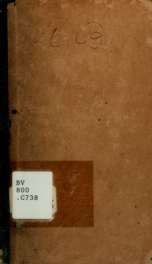Society of Friends

The Religious Society of Friends is a religious movement, whose members are known as Friends or Quakers. The roots of this movement are with some 17th century Christian English dissenters, but today the movement has branched out into many independent national and regional organizations, called Yearly Meetings, which, while sharing the same historical origins, have a variety of names, beliefs and practices. It is therefore very difficult to accurately describe beliefs and practices of the Religious Society of Friends generally, as these differ considerably between different Yearly Meetings. Most groups of Friends meet for regular worship, but the form this takes differs considerably between different Yearly Meetings and traditions, ranging from silent meetings with no leader and no fixed plan of what will happen, through to services led by a pastor with readings and hymns (similar to conventional church services). The theological beliefs of the different Yearly Meetings also vary, from some holding very strong evangelical Christian beliefs through the spectrum to some holding predominantly universalist or Christian universalist beliefs. In the public eye, Quakers are known for their social activism, having been instrumental in the campaign against the transatlantic slave trade, as well as campaigning for the rights of minorities such as women, prisoners or gay people.[1][2] A number of leading charities today were founded with participation from Quakers, such as Oxfam and Amnesty International.[3] The Religious Society of Friends began in England in the 1650s, as a Nonconformist breakaway movement from English Puritanism. As the movement expanded, it faced opposition and persecution. Friends were imprisoned and beaten in Great Britain, Ireland and the British colonies. William Penn was imprisoned in England on a number of occasions. In the 1670 "Hay-market case", William Penn was accused of the crime of 'preaching Quakerism to an unlawful assembly', and while he freely admitted his guilt he challenged the righteousness of such a law. The jury, recognizing that William Penn clearly had been preaching in public, but refusing to find him guilty of speaking to an unlawful assembly, attempted to find Penn guilty of "speaking in Gracechurch-street". The judge, unsatisfied with this decision, withheld food, water, and toilet facilities from the jurors for three days. The jurors finally decided to return a not guilty verdict overall, and while the decision was accepted, the jurors were fined. One of the jurors appealed this fine, and Chief Justice Sir John Vaughn issued an historically important ruling: that jurors could not be punished for their verdicts. This case is considered a significant milestone in the history of jury nullification.[4] In the Massachusetts Bay colony, Friends were banished on pain of death — some (most famously Mary Dyer) were hanged on Boston Common for returning to preach their beliefs. In England Friends were effectively banned from sitting in Parliament at Westminster from 1698-1833. The Commonwealth of Pennsylvania was founded by William Penn, as a safe place for Friends to live and practice their faith. Despite persecution, the movement grew steadily. During the 19th century Friends in Ireland and the United States suffered a number of separations. Various names have been used for the Friends movement and its adherents. These include: In the first few years of the movement, Quakers thought of themselves as part of the restoration of the true Christian church after centuries of apostasy. For this reason, during this period they often referred to themselves as simply the "saints". Other common names in the early days were "Children of the Light" and "Friends of the Truth", reflecting the central importance in early Quaker theology of Christ as an Inner light that shows you your true condition. The name "Quaker" was first used in 1650, when George Fox was brought before Justice Bennet of Derby on a charge of blasphemy. According to Fox's journal, Bennet "called us Quakers because we bid them tremble at the word of God"[5], a scriptural reference (e.g., Isaiah 66:2, Ezra 9:4). Therefore, what began apparently as a way to make fun of Fox's admonition by those outside the Society of Friends became a nickname that even Friends use for themselves. The name "Religious Society of Friends" came many years later, in the 18th century. This remains the most widely-accepted name to this day, although often "Quakers" is added in parentheses for the sake of clarity. However, there are some Friends who prefer other names: some evangelical Friends' organizations use the term "Friends Church", and some Friends (usually in unprogrammed meetings) object to the word "religious" and refer to themselves as part of the "Society of Friends". There are some monthly meetings that for this reason do not include "religious" in their name, while most larger Quaker organizations, such as yearly meetings, use the full name. In 1827 a division occurred within Philadelphia Yearly Meeting when its members could not agree on who was to be clerk. The issue involved the visits and preaching of Elias Hicks in violation of the will of numerous meetings; they claimed his views were universalist and contradicted the historical tradition of Friends. The same year, a number of Friends in sympathy with him separated to form a parallel system of yearly meetings in America, referred to as Hicksite and those who did not were called Orthodox; ultimately five yearly meetings divided. The splits in New York and Philadelphia Yearly Meetings were overcome in 1955 when in each yearly meeting the Orthodox and Hicksite meetings merged; Baltimore's division ended a decade later. The Beaconite Controversy arose from the book "A Beacon to the Society of Friends," published in 1835 by Isaac Crewdson. He was a minister in the Manchester Meeting. The controversy arose in 1831 when doctrinal differences amongst the Friends culminated in the winter of 1836-1837 with the resignation of Isaac Crewdson and of 48 fellow members of the Manchester Meeting. About 250 others left in various localities in England including prominent members. A number of these joined themselves to the Plymouth Brethren and brought influences of simplicity of worship to that society. Notable among the Plymouthists who were former Quakers included John Eliot Howard of Tottenham and Robert Mackenzie Beverley. The Orthodox Friends in America were exercised by a transatlantic dispute between Joseph John Gurney of England and John Wilbur of Rhode Island. Gurney emphasized scriptural authority and favored working closely with other Christian groups. Wilbur, in response, defended the authority of the Holy Spirit as primary, and worked to prevent what he saw as the dilution of Friends tradition of Spirit-led ministry. Wilbur was expelled from his yearly meeting in a questionable proceeding in 1842. Over the next several decades, a number of Wilburite-Gurneyite separations occurred. The Wilburite tradition is carried on today to varying degrees by the conservative yearly meetings of Ohio, Iowa, and North Carolina; Ohio Yearly Meeting (Conservative) is generally considered the most traditional in this regard, retaining more rural Quakers who use the plain language and continue wearing plain dress more than the other two.[6] Joel Bean was an Orthodox Friend who opposed the extreme evangelicalism that was creeping into his branch of Quakerism. He formed a new branch of Quakerism in the western part of the United States when his membership was terminated and his meeting was laid down by Iowa Yearly Meeting. The "Beanite", or independent, Quakers resemble an amalgam of Hicksite and Wilburite Quakerism. During the 1980s some of them adopted the label "Christ-Centered Universalism". George Fox and the other early Quakers believed that direct experience of God was available to all people, without mediation (e.g., through hired clergy, or through outward sacraments). Fox described this by writing that "Christ has come to teach His people Himself." [7] Since Friends believe that each contains God, much of the Quaker perspective is based on trying to hear God and to allow God's Spirit free action in the heart. Isaac Penington wrote in 1670: "It is not enough to hear of Christ, or read of Christ, but this is the thing — to feel him my root, my life, my foundation..."[8] The theological beliefs of different Yearly Meetings vary considerably, ranging from evangelical Christianity through to universalist and new thought beliefs. Some yearly meetings (especially those in parts of the US and Africa affiliated to Friends United Meeting) regard Christ as their teacher and Lord[9]. Other yearly meetings (especially those in parts of the US, Asia and Central America which are affiliated to Evangelical Friends Church International) regard Christ as their Lord and saviour[9]. Other yearly meetings (especially those in parts of the US which are affiliated to the wider fellowship of conservative Friends, trust in the immediate guidance of an inward Christ[9].) There is often a very wide variety of theological belief in some other yearly meetings (often termed liberal yearly meetings such as those in parts of the US affiliated to Friends General Conference, many yearly meetings in Europe and Australia/New Zealand and the Beanite yearly meetings in western United States), with meetings often having a large proportion of liberal Christians and universalist Christians some of whom trust in the guidance of an inward Christ or inner light, with some non-theists, agnostics, and atheists, as well as some who are also members of other religions, although even amongst liberal yearly meetings this is controversial. Common ideas among members of these liberal yearly meetings include a belief of "that of God in everyone", and shared values, such as to peace, equality and simplicity.[10] While the predominant theological beliefs of different Yearly Meetings do not tally exactly with the style of service[10], there is often some co-relation, with many Yearly Meetings that hold programmed worship having more evangelical theological beliefs, and those with unprogrammed worship tending to have more liberal theological beliefs.
do you like this author?
What readers are saying
What do you think? Write your own comment on this book!
write a commentWhat readers are saying
What do you think? Write your own comment on this author!
write a commentBook list
![An appeal to the Christian public, on the inconsistency of war with the gospel dispensation [microform]_cover](/img/standard/standard_book.png)
An appeal to the Christian public, on the inconsistency of war with the gospel dispensation [microform]
Series:
Unknown
Year:
Unknown
Raiting:
4/5
Cover title Signed on behalf of the society by Ira Clark Duplicate of CIHM no. 24550 Filmed from a copy of the original publication held by the Douglas Library, Queen's University 43
Show more
add to favoritesadd In favorites

A Biographical Memoir of Richard Jordan: A Minister of the Gospel, in the Society of Friends ...
Series:
Unknown
Year:
Unknown
Raiting:
4.5/5
Book digitized by Google from the library of Harvard University and uploaded to the Internet Archive by user tpb.
Show more
add to favoritesadd In favorites
Book list
![An appeal to the Christian public, on the inconsistency of war with the gospel dispensation [microform]_cover](/img/standard/standard_book.png)
An appeal to the Christian public, on the inconsistency of war with the gospel dispensation [microform]
Series:
Unknown
Year:
Unknown
Raiting:
4/5
Cover title Signed on behalf of the society by Ira Clark Duplicate of CIHM no. 24550 Filmed from a copy of the original publication held by the Douglas Library, Queen's University 43
Show more
add to favoritesadd In favorites

A Biographical Memoir of Richard Jordan: A Minister of the Gospel, in the Society of Friends ...
Series:
Unknown
Year:
Unknown
Raiting:
4.5/5
Book digitized by Google from the library of Harvard University and uploaded to the Internet Archive by user tpb.
Show more
add to favoritesadd In favorites
![An appeal to the Christian public on the inconsistency of war with the gospel dispensation [microform]_cover](/img/standard/standard_book.png)
An appeal to the Christian public on the inconsistency of war with the gospel dispensation [microform]
Series:
Unknown
Year:
Unknown
Raiting:
3/5
Cover title Signed on behalf of the society by Ira Clark Duplicate of CIHM no. 05727 Filmed from a copy of the original publication held by the Bibliothèque nationale du Québec 43
Show more
add to favoritesadd In favorites
![Discipline of the Society of Friends of Canada yearly meeting [microform]_cover](/img/standard/standard_book.png)
Discipline of the Society of Friends of Canada yearly meeting [microform]
Series:
Unknown
Year:
Unknown
Raiting:
5/5
Filmed from a copy of the original publication held by the Victoria University, Emmanuel College Library 43
Show more
add to favoritesadd In favorites

Book of Meetings: Containing an Account of the Times and Places of Holding the Meetings of the ...
Series:
Unknown
Year:
Unknown
Raiting:
4.5/5
Book digitized by Google from the library of Harvard University and uploaded to the Internet Archive by user tpb.
Show more
add to favoritesadd In favorites

A Brief Statement of the Rights of the Seneca Indians in the State of New York: To Their Lands ...
Series:
Unknown
Year:
Unknown
Raiting:
3/5
Book digitized by Google from the library of Harvard University and uploaded to the Internet Archive by user tpb.
Show more
add to favoritesadd In favorites

A brief account of the proceedings of the committee, appointed in the year 1795 by the Yearly Meeting of Friends of Pennsylvania, New Jersey, & C., for promoting the improvement and gradual civilization of the Indian Natives
Series:
Unknown
Year:
Unknown
Raiting:
3.5/5
Show more
add to favoritesadd In favorites

Constitution and discipline for the American Yearly meetings of Friends
Series:
Unknown
Year:
Unknown
Raiting:
5/5
Show more
add to favoritesadd In favorites

Biographical Catalogue: Being an Account of the Lives of Friends and Others Whose Portraits are ...
Series:
Unknown
Year:
Unknown
Raiting:
4.5/5
Book digitized by Google from the library of Harvard University and uploaded to the Internet Archive by user tpb.
Show more
add to favoritesadd In favorites

A statistical inquiry into the condition of the people of colour, of the city and districts of Philadelphia
Series:
Unknown
Year:
Unknown
Raiting:
3.5/5
Birney Anti-Slavery Collection
Show more
add to favoritesadd In favorites

A Declaration of Some of the Fundamental Principles of Christian Truth, as Held by the Religious ...
Series:
Unknown
Year:
Unknown
Raiting:
2.5/5
Book digitized by Google from the library of Harvard University and uploaded to the Internet Archive by user tpb.
Show more
add to favoritesadd In favorites

Book of Meetings: Containing an Account of the Times and Places of Holding the Meetings of the ...
Series:
Unknown
Year:
Unknown
Raiting:
2.5/5
Book digitized by Google from the library of Harvard University and uploaded to the Internet Archive by user tpb.
Show more
add to favoritesadd In favorites

Water baptism and the Lord's Supper. Scriptural arguments in behalf of the perpetual obligation of these ordinances
Series:
Unknown
Year:
Unknown
Raiting:
3/5
Show more
add to favoritesadd In favorites

A Collection of memorials concerning divers deceased ministers and others of the people called Quakers : in Pennsylvania, New-Jersey, and parts adjacent, from nearly the first settlement thereof to the year 1787 ; with some of the last expressions and exh
Series:
Unknown
Year:
Unknown
Raiting:
3.5/5
Show more
add to favoritesadd In favorites

Remarks Upon Christian Discipline and Church Government: Extracted Principally from the Writings ...
Series:
Unknown
Year:
Unknown
Raiting:
3.5/5
Book digitized by Google from the library of Harvard University and uploaded to the Internet Archive by user tpb.
Show more
add to favoritesadd In favorites

A Biographical Memoir of Richard Jordan: A Minister of the Gospel, in the Society of Friends ...
Series:
Unknown
Year:
Unknown
Raiting:
4.5/5
Book digitized by Google from the library of Harvard University and uploaded to the Internet Archive by user tpb.
Show more
add to favoritesadd In favorites

Extracts from Writings of Friends, on the Subject of Slavery
Series:
Unknown
Year:
Unknown
Raiting:
2.5/5
Book digitized by Google from the library of Harvard University and uploaded to the Internet Archive by user tpb.
Show more
add to favoritesadd In favorites
What readers are saying
What do you think? Write your own comment on this author!
write a commentGenre
- Books / Music
- Religion & Spirituality / Christianity / Literature & Fiction / Fiction
- Law / United States
- Nonfiction / Education / Education Theory / History
- Books / Children's songs
- Reference / Foreign Languages / Instruction / French
- Books / Children's Bookses / Religions / Christianity / Ages 9-12
if you like Society of Friends try:
readers also enjoyed
What readers are saying
What do you think? Write your own comment on this author!
write a commentGenre
- Books / Music
- Religion & Spirituality / Christianity / Literature & Fiction / Fiction
- Law / United States
- Nonfiction / Education / Education Theory / History
- Books / Children's songs
- Reference / Foreign Languages / Instruction / French
- Books / Children's Bookses / Religions / Christianity / Ages 9-12
if you like Society of Friends try:
readers also enjoyed
Do you want to read a book that interests you? It’s EASY!
Create an account and send a request for reading to other users on the Webpage of the book!

